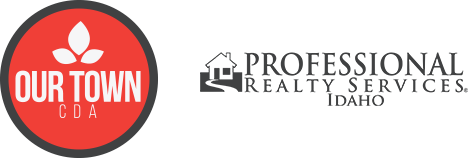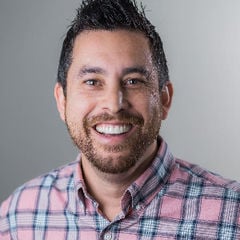By Dan Aznoff | Article Provided by Coeur d’Alene Living Local
Fifty years ago, I was an acne-faced teenager desperately trying to cling to the tail of the political unrest that had swept our nation.
While most of my junior high classmates spent their after-school hours on ball fields, my days were filled with creating memorable catch phrases that could be painted on poster boards that I prepared for the next rally against social injustice or the bloody war in Vietnam.
My lunch hours were filled with gatherings of like-minded young people who would take turns standing on tables outside the cafeteria delivering passionate speeches on the inequalities in our society.
For a would-be student radical, the 1968 presidential elections were better than the World Series. The local elections in my community in Southern California provided my first opportunity to put words into action. My pockets were stuffed with leaflets as well as potholders and other promotional materials distributed by the various candidates.
Election Day was spent standing on the median of a local highway waving a sign to encourage motorists to vote for my preferred candidate for state assembly. When the polls closed, volunteers gathered at the campaign office around the corner from my home to wait for the early returns.
My passion was fueled in large part by the candidacy of Bobby Kennedy, who was engaged in a tight race for the Democratic presidential nomination against Sen. Eugene McCarthy. The contest for delegates had tightened the week earlier when the lawmaker from Minnesota had bested Kennedy in the Oregon primary.
Kennedy was perceived by many as the only candidate who could unite the party (and the country) during a tempestuous time of unrest.
Both senators had taken a strong stance against the war in the uphill contest against Vice President Hubert Humphrey. The VP had assumed the role of presumptive Democratic nominee when President Lyndon Johnson unexpectedly withdrew from the race at the end of March after he had been upstaged by McCarthy in the New Hampshire primary.
The crowd at the assemblyman’s campaign office was jubilant with the early returns that indicated their efforts had resulted in victory for their candidate. Many of those in the crowded office wanted to move the celebration from the suburban campaign headquarters to Downtown Los Angeles to join the festivities at the Kennedy campaign headquarters.
The prospect of being a part of the Kennedy victory celebration at the Ambassador Hotel inspired me to deceive my parents about where I would be and to stay out past my curfew.
We stuffed ourselves into a half-dozen cars for the short ride downtown.
The throngs of people in the Embassy Ballroom at The Ambassador grew more enthusiastic as Kennedy’s lead in early returns indicated a much-needed victory en route to the nominating convention in Chicago.
As an observer of history, I found myself positioned near a side door as victory grew near. My emotions were a mix of excitement coupled with guilt for being so far from home on a school night and for deceiving my parents.
Just after midnight, almost without warning, I was shoved out of my safe haven near a side door by a surge of photographers and reporters. A few steps behind the media were members of Kennedy’s staff, looking confident and mildly disheveled.
Bobby walked into the room behind them, surrounded by an elite combination of celebrities and famous athletes. The candidate was wearing a freshly pressed suit over a crisp white shirt. He stopped to shake hands with as many people as he could reach through the barrier of humanity that had engulfed him.
He stopped in front of me. With a sweep of one hand, he brushed the hair away from his face long enough to lean down and look straight into my eyes. I uttered some innocuous comment before Bobby asked me my name. “Danny, sir.”
The noise was deafening, but I could hear the sincerity in his reply. “Well Danny, I hope I can count on your vote in November.”
I did not want to tell him that I was still eight years away from being 21 and legally able to vote.
In an instant, he was gone, headed toward the podium where he would claim victory in the winner-take-all California primary. He held up his fingers to symbolize V for victory and pledged to win the nomination at the convention in Chicago.
The infamous gunshots from the kitchen a few moments later were as clear as if they had been fired in an empty room. A tight corridor opened in the sea of bodies that gave me a glimpse of Rosey Grier as he struggled to pry the gun away from the shooter. The gunman continued to pull the trigger after he had fired all six rounds from his .22 caliber handgun.
The rest of the evening was a blur of sirens and news cameras.
We made the 20-minute drive home in silence. My mind was filled with the horrific images I had witnessed, but I went to bed that night without admitting to my parents where I had been. I avoided any conversation with classmates until the next afternoon when our teachers informed us that Kennedy had died from his wounds.
I cried more that night than when my mother died eight years later.
The man who had the ability to lead the nation out of the desperate times that began five years earlier when President Kennedy was gunned down in Dallas was gone. The future looked bleak without a man to lead us out of the darkness. Bobby was shot by Sirhan Sirhan, a Palestinian who believed killing the next president would prevent the sale of American jets to Israel.
The site of the violence has changed dramatically over the last 50 years. The Ambassador Hotel fell into disrepair and has been replaced by a community of public schools named to honor the fallen senator dedicated to the ideals he championed.
The nation has not. The ideals of social justice Kennedy symbolized a half-century ago continue to be out of reach for a nation in search of its soul.
That night changed my life forever. Being a witness to history inspired me to become a journalist who could provide objective information on the people responsible for the changes in our society.
Bobby has been a part of my life every day for the past 50 years. I continue to be inspired by the ideals he advocated and mourn for the loss of where we could be as a nation if he had lived to fulfill his vision of equality.
Robert Kennedy’s assassination on June 5, 1968, in a Los Angeles hotel came just months after the assassination of Dr. Martin Luther King, Jr. and less than five years after the assassination of Robert’s brother, President John F. Kennedy. Although he died the day after his shooting at the young age of 42, the young politician spent nearly half of his life in public service making a significant impact on American politics.
- Robert Kennedy was the chief counsel of the Senate Labor Rackets Committee from 1957 to 1959 where he challenged Teamsters President Jimmy Hoffa over the corrupt practices of the union.
- Bobby, who was eight years younger than his brother, managed John F. Kennedy’s presidential campaign. But it wasn’t always smooth sailing. When John F. Kennedy chose Lyndon Johnson as his running mate, Bobby Kennedy asked Lyndon Johnson to refuse the request. The two had a continued dislike for one another until Bobby’s death.
- Robert Kennedy served as the 64th United States attorney general from January of 1961 to September of 1964, serving under his brother, John F. Kennedy, until the president’s assassination in November of 1963. Bobby stayed on as attorney general until he resigned 10 months following President Kennedy’s death.
- Following his brother’s death, Robert Kennedy was elected senator of New York, where he continued his mission to advocate for the poor and for human rights. He was known for his opposition to racial discrimination and the escalation of the United States’ involvement in the Vietnam War.
- During the procession of Robert Kennedy’s funeral train, two people were killed when they hurried to move out of the path of the Kennedy train and were struck and killed by a train moving in the opposite direction.
- According to the Washington Post, Robert F. Kennedy, Jr., who lost his father when he was 14 years old, visited with Sirhan B. Sirhan, the man convicted of killing his father, earlier this year at a correctional facility in California. After his visit, Robert Kennedy, Jr. said he believes there was a second gunman and that it was not Sirhan who killed his father.
The Kennedy Curse
With the assassinations of both Bobby and John Kennedy, one would think that is more than any family should have to endure. But in what has been called “The Kennedy Curse,” there have been many tragedies that have affected this historic family, and they have spanned the generations. Surprisingly, many have involved plane crashes.
- Perhaps best known to the current generation is when John F. Kennedy, Jr., his wife, Carolyn Bessette Kennedy and her sister Lauren Bessette were killed in a plane crash in 1999. The young Kennedy was piloting the plane.
- What many may not know is that Ted Kennedy survived a plane crash in 1964 which resulted in the deaths of two people.
- President Kennedy’s oldest brother, Joe Kennedy Jr., also died in an air disaster in 1944 after he volunteered to pilot a secret bombing mission in Nazi-occupied France during World War II.
- It was just four years after Joe Kennedy, Jr.’s death when Robert and John’s sister, Kathleen Kennedy, also died in a plane crash. At the young age of 28, Kathleen, who was married to William Cavendish, England’s Marquess of Hartington, died when their plane crashed in France while flying in a storm.


